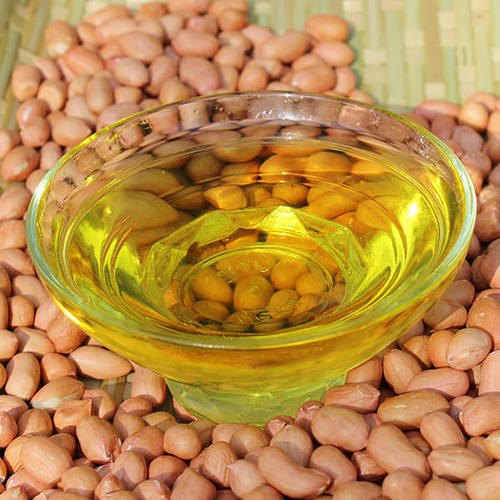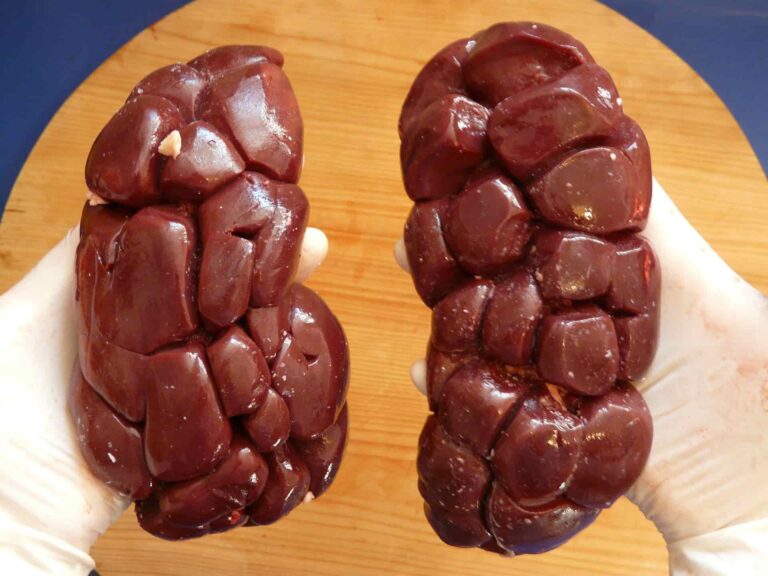Peanut Oil: Health Benefits, Origin,
Peanut oil is not particularly widespread in our part of the world – it is even more so in Asian cuisine. The strong aroma of the oil is perfect for refining a wide variety of dishes.
Peanut oil is one of the most important oils in Asian cuisine – the high smoke point of the oil makes it ideal for frying and deep-frying with the Asian round pan (= wok).
Due to its composition of fatty acids, the oil offers great added health benefits and should therefore be on the menu regularly.

Origin / quality features
Peanut oil is obtained from peeled and dried peanut kernels (= are legumes and not nuts):
- Cold pressing (= native) – the cores are not heated during pressing (= refined) and no additives are added. This gives it an aromatic taste and a beautiful yellow color. However, the oil is not suitable for heating, for example when frying.
- Refined – Refined peanut oil is more heat-resistant. However, it does not have the color, taste or health value of the native oil.
When buying peanut oil, you should use the BIO certificate . This is a little more expensive, but has to meet certain criteria (controlled organic cultivation, cold-pressed, no post-treatment, no additives, etc.).
Use in the kitchen
Peanut oil is mainly found in Asian cuisine. The refined oil is mainly used here for frying wok dishes . Refined peanut oil is also suitable for deep-frying due to its high smoke point.
If dishes are to be refined in terms of taste, the native variant of the oil is preferable. It has a strongly aromatic taste, which can give salads, raw food dishes and other cold dishes that certain something.
Info: The smoke point of cold-pressed peanut oil is 160 degrees . Refined oils can be heated up to 230 degrees .
For example, peanut oil goes perfectly with rice, fish, asparagus or celery and is also perfect for perfecting mayonnaise and other sauces. The oil is also often used to refine salads, tofu or (Asian) noodles.
Like most oils, peanut oil should be kept tightly closed in the dark and cool to help it hold up. If peanut oil has not yet been opened, it may be able to be stored for up to 2 years.
Info: It should not be stored in the refrigerator, as the oil takes on a viscous consistency at temperatures below 10 degrees Celsius . It becomes solid between 1 and 3 degrees, but becomes liquid again when heated.
Health Benefits of Peanut Oil
Peanut oil contains almost 45% polyunsaturated fatty acids and around 36% monounsaturated fatty acids and is therefore one of the “healthier” edible fats.
- It is known for its high vitamin E content.
- Vitamins B1, D and K are also represented.
- Peanut oil has a positive effect on blood pressure, blood fat levels and cholesterol levels.
- The oil is also said to have a good effect on the immune system and inflammation.
- Peanut oil can also help with dandruff and is generally used for scalp disorders.
- The oil loosens blockages and has a stimulating effect on the digestive tract.
Info: The oil can also be used as a base oil for face masks or (baby) massage oil.





